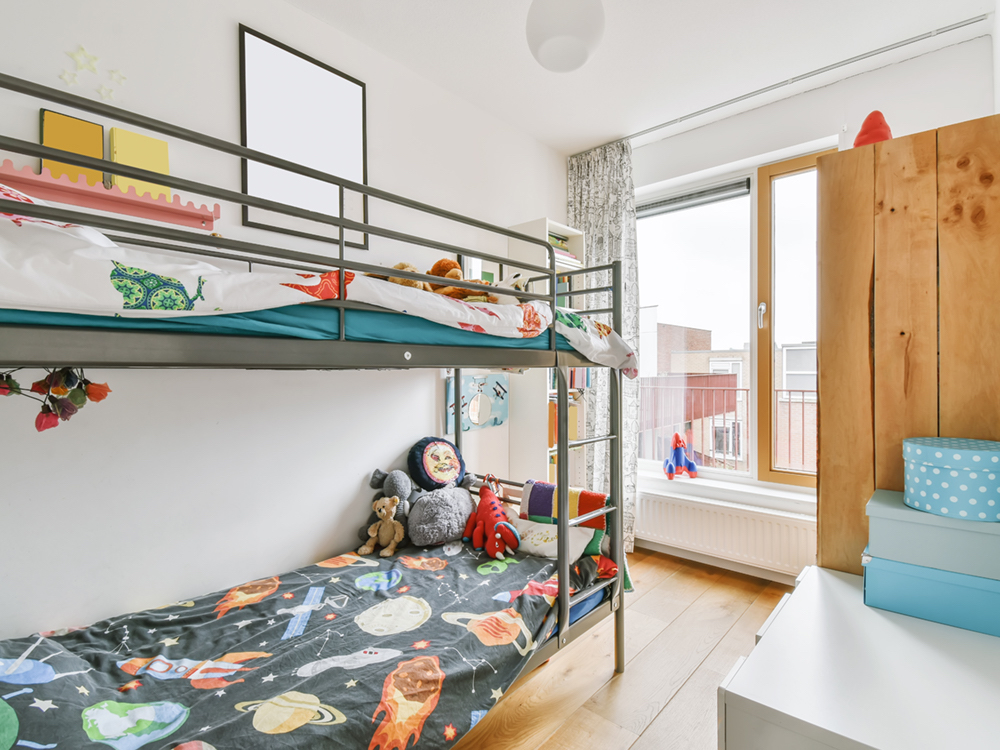If your kids are young, then landlords might find them too “noisy.” If they’re older, landlords might not “like teens.” If you’ve got a bigger family, then perhaps you’ve just got too many kids.
These were just some of the reasons families say landlords gave when turning them down for housing in the private market, says Adrienne Montani, executive director of First Call Child and Youth Advocacy Society.
For years, First Call, which also produces the annual B.C. child poverty report card, has been hearing from families with kids struggling to find affordable and adequate housing.
Its new report, financed by the Law Foundation of BC, zeroes in on the data.
The report found that almost 40 per cent of the 251 families contacted by First Call said they’d faced discrimination in the private rental market because they have kids. First Call surveyed 205 families and spoke with another 46 in in-person listening circles.
Montani said she was surprised by the volume of family discrimination reports.
The situation was even worse for immigrant or refugee families, parents escaping family violence, Indigenous and Black families and other families of colour, low-income and single-parent-led families, and families that included people with disabilities.
The report paints a “rather depressing” picture of how our society views children, Montani said.
And discrimination wasn’t even the main barrier to housing that families reported. Housing affordability, size and quality of housing available and housing wait-lists topped the list.
First Call also surveyed 163 service providers across B.C. that assist families in finding a place to live.
Between the families and the services, Montani said they represent a cross-section of almost the entire province, except northern B.C., where responses were few.
Service providers agreed affordability was the highest barrier for families but disagreed about the next two most important barriers, placing more emphasis on wait-lists and discrimination.
Unaffordable
First Call’s housing report found the average rent for a two-bedroom apartment in Metro Vancouver was over $3,900 in 2023. But a four-person family on income assistance had access to a maximum $840 monthly shelter rate as of August 2023.
The report also quoted the Canada Mortgage and Housing Corp.'s rental report, which found that across Canada in 2022, new renters paid 24 per cent more on average for a two-bedroom unit than the previous tenant.
Of the parents surveyed by First Call, 22 per cent reported experiencing homelessness with their children. This rate was even higher for families in which both a child and a parent are disabled (79 per cent) and for Indigenous families (72 per cent).
Families adapt to these conditions by living in overcrowded housing and/or paying more of their monthly income for rent, Montani told The Tyee.
The report found that in 2021, more than 70 per cent of low-income families with children were spending over 30 per cent of their income on shelter.
“Which means that they don’t have enough for food or other necessities,” Montani said.
Overcrowded living situations were their own source of strife, families told First Call, resulting in everything from a lack of privacy to a lack of a place for kids to study at home.
Some women reported staying in unhealthy relationships because they couldn’t afford to leave.
“And parents would tell us what their kids said: ‘How come my friends have their own bedroom and I don’t?’ Or ‘Why can’t I bring people over to play?’ And it’s because they’re too crowded,” Montani said.
Fear of child welfare interventions
The report also touched on another familiar story for organizations working with families: the link between poor housing and child welfare interventions.
Overall, 22 per cent of parents surveyed said they were afraid of losing custody of their kids to the Ministry of Children and Family Development because of their housing situation. That fear was again much greater for Indigenous parents (72 per cent), parents with disabilities (69 per cent) and single-parent-led families (39 per cent).
Four families — all single-parent led, people of colour or Indigenous, and with a disabled family member — told First Call the ministry took their children because of their housing situations. Six families — all but one led by a single parent with a disability — reported housing access was an obstacle to getting their kids back.
In an emailed statement to The Tyee, a spokesperson for the Ministry of Children and Family Development said both the provincial Child, Family and Community Service Act and the federal Act Respecting First Nations, Inuit and Métis Children, Youth and Families prohibit removing children solely for their housing circumstances.
“Our goal is always to keep children safely with their parents or extended family. By law, the ministry may only remove a child if the child needs protection and is either in immediate danger or no other less disruptive measures are available and adequate to protect the child,” the statement read.
Montani said that what First Call heard from both families and support services contradicted this.
She added that families who might benefit from ministry support reported “hiding” from the ministry because they were afraid their kids would be taken as a result of their housing situation.
According to the ministry, almost 93 per cent of kids “in need of protection” are able to stay with their families after receiving ministry support.
Rights to housing
The B.C. and Canadian governments have made commitments recognizing children’s right to housing in the past.
The National Housing Strategy, the B.C. Human Rights Code and international covenants Canada has signed or ratified, like the UN Convention on the Rights of the Child, make clear housing is a human right.
The provincial government even changed strata legislation to allow for some tenants under age 55 in buildings designated for people 55 and older.
However, while B.C.’s Human Rights Code prohibits discrimination against tenants based on family status and on age, the code defines “age” as individuals 19 and older. First Call wants to see that change to include people under 19, too.
The Residential Tenancy Branch, where tenants can take complaints about landlords, takes only tenancy law, not the Human Rights Code, into account when reaching a decision, Montani said.
“Families are not launching human rights complaints,” she said. These kinds of complaints can take years to conclude, and many families don’t know they are even an option.
Instead, Montani said, B.C. should follow Ontario’s lead and empower the Residential Tenancy Branch to enforce the Human Rights Code where applicable, she said.
Housing Minister Ravi Kahlon, who spoke to The Tyee on Jan. 17, said he hadn’t yet finished reading First Call’s housing report. He said that while he was aware families faced housing discrimination, he was nevertheless surprised by the frequency families reported.
“We know that when you have a shortage of housing the pressure undoubtedly goes on some of the most vulnerable people in our communities: racialized communities, Indigenous communities, families, young people are facing the real brunt of the housing challenges,” Kahlon said.
He said he could not yet comment on changing the Human Rights Code or empowering the Residential Tenancy Branch to enforce it.
But he said many of the other recommendations in First Call’s report, such as building more affordable housing and prioritizing families with children on wait-lists for subsidized housing are already underway. Kahlon said that in many cases, BC Housing already prioritizes housing families with children over other groups, and that non-traditional family structures are accepted by BC Housing, particularly in Indigenous communities.
“We need to both expand all types of housing available, but also focus on housing for some of the most vulnerable people,” he said, including people fleeing domestic violence, youth, seniors, First Nations community housing and urban and rural Indigenous housing.
With an investment of “almost $11 billion over the next three years,” Kahlon said, the province hopes to build much more housing. Due to inflation and rising construction costs, Kahlon said he could not cite exactly how many units that $11 billion would create. ![]()
Read more: Rights + Justice, Housing

















Tyee Commenting Guidelines
Comments that violate guidelines risk being deleted, and violations may result in a temporary or permanent user ban. Maintain the spirit of good conversation to stay in the discussion and be patient with moderators. Comments are reviewed regularly but not in real time.
Do:
Do not: